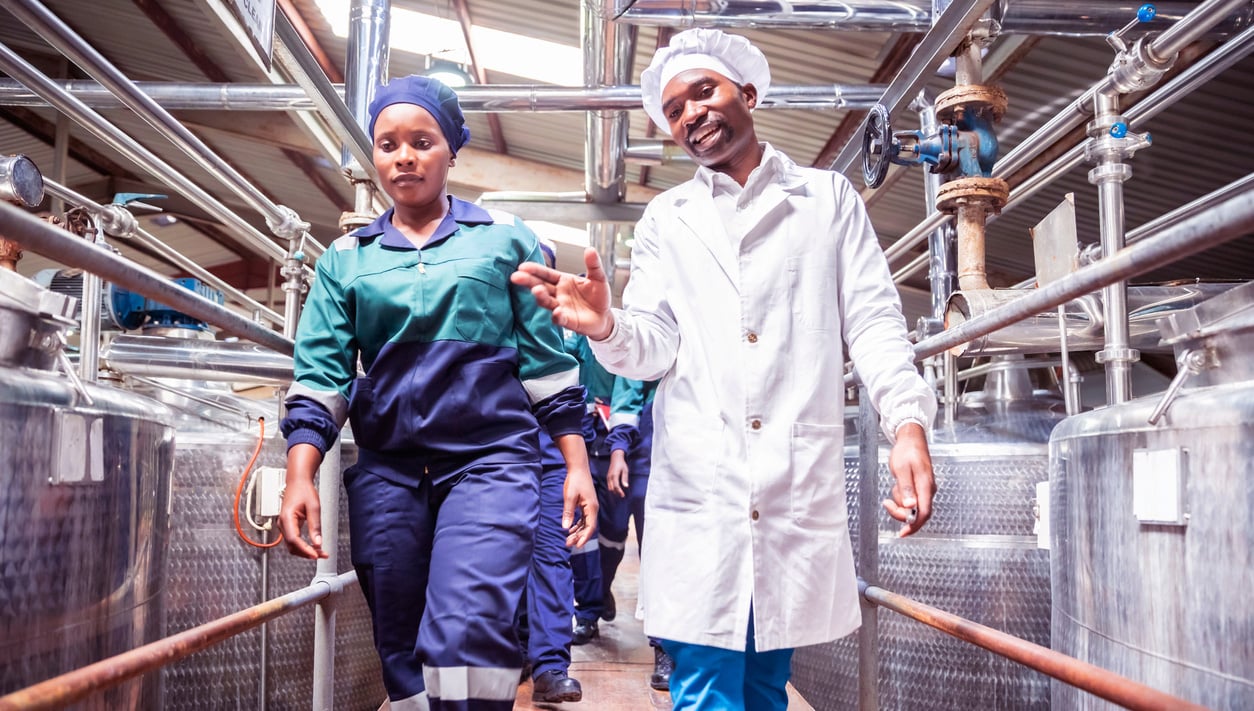4 Ways to Maintain Food Safety Standards During a Labor Shortage
While employment rates in the food manufacturing industry have far surpassed pre-pandemic levels, demand for labor continues to outpace the workforce. Frontline employees remain stretched thin and, to fill in gaps, companies may hire less experienced temporary labor at considerable risk to quality and compliance with food safety standards. It’s critical for manufacturers to find ways to uphold high standards — even in a difficult labor market.
Attracting qualified workers with better compensation, flexibility, and working conditions can go a long way in quickly filling positions and reducing turnover, but those strategies may not always be an option for food and beverage manufacturers. Companies need to focus on strategies that directly improve compliance with food safety standards. Here are four methods shown to be most effective:
1. Invest in food safety training programs and continuous education
Given the high financial and brand risks of poor food safety compliance, companies cannot afford to assume all employees are familiar with food safety standards. Training can help new workers understand food safety best practices while providing a refresher to their more experienced colleagues.
AIB International’s comprehensive and interactive food safety and sanitation digital course helps mid-level employees who are often tasked with onboarding new workers. By tackling that critical first line of defense, companies can consistently uphold their food safety standards throughout the food supply chain.
2. Review key workflows and protocols with an internal audit
Understanding food safety best practices is just the first step: to create a lasting impact, you need to transform knowledge into compliance.
The best way to approach this task is by reviewing your key workflows and protocols through an internal audit: Form an audit team, choose a consolidated standard for assessing your facility, and review your findings to update any necessary food safety protocols and best practices.
The benefits of a strong internal audit program are significant — you can correct any food safety issues before they snowball, while also better preparing for future food safety inspections.
3. Hire an external expert to fill critical gaps
When your entire day is dedicated to managing day-to-day tasks and operations, zooming out to identify systemic food safety risks can feel impossible. That’s where external trusted partners can come in.
Through AIB’s Assign an Expert service, food safety experts arrive at your facility and become a member of your team for as long as needed. Given their expertise, they can help you solve problems such as:
- Identifying food safety risks and gaps
- Delivering on-site staff training
- Providing solutions to various high-risk food safety issues
- Building better food safety processes and habits
4. Explore new food safety innovations
In labor-intensive sectors, like the food industry, human error is sometimes inevitable, even with airtight processes. Luckily, embracing new technological innovations in the food safety space can help you minimize risks. Some examples include:
- Automated monitoring sensors (e.g., for coolers, freezers, and other food storage units) that eliminate the need for repetitive data collection and alert you to anomalies.
- UV light-based decontamination robots that can disinfect large spaces and advance sanitation techniques.
- Food safety automation software that reminds managers of cleaning and maintenance schedules, supplier monitoring, trend tracking, and more.
Overcoming the Barriers to High Food Safety Standards
Maintaining food safety when struggling with a labor shortage can be stressful, but by empowering your workforce with the proper training, processes, and technology, you set the foundation for a strong food safety culture that, over time, can help ensure all the food you deliver to consumers is safe for them.
AIB International offers a wide range of food safety trainings to help your team meet food safety goals today.


